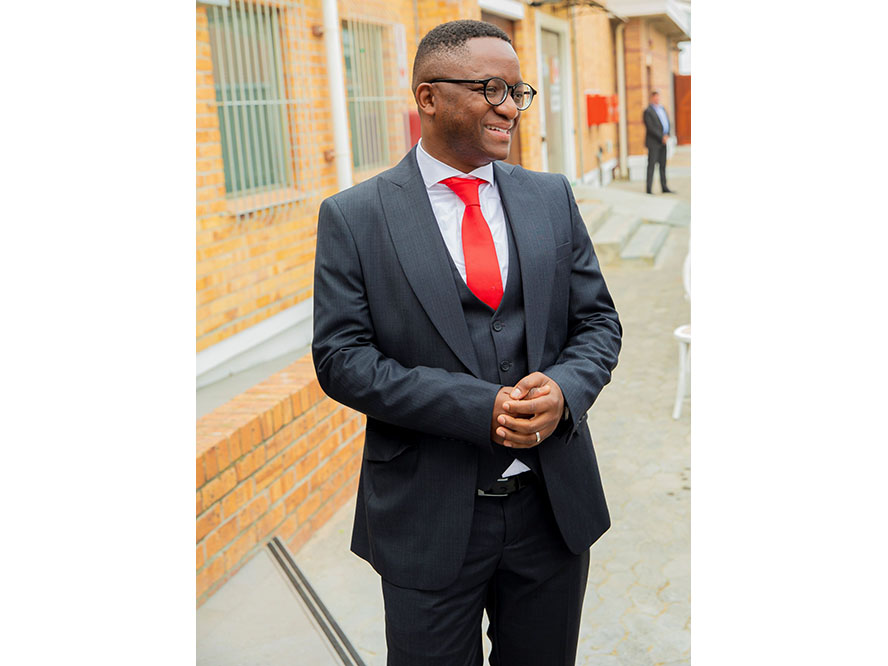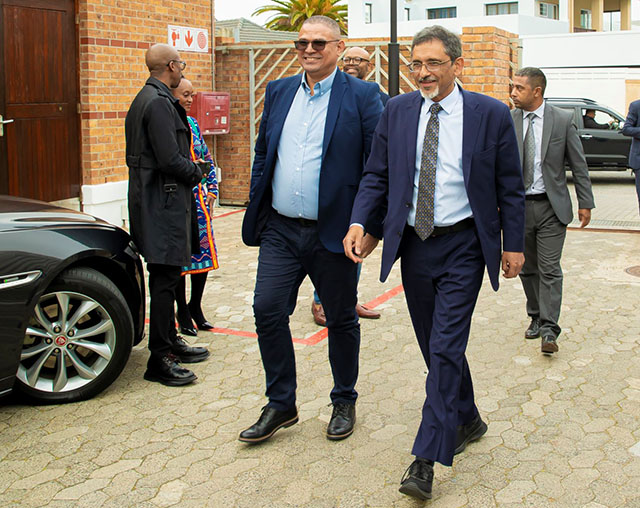Equiano cable landing: Greater internet access - and hope - for Africa
By Ryan Noik 6 September 2022 | Categories: Corporate Events
A significant development for Africa and its connected future quietly took place at the end of last week in Cape Town, as Openserve and Google, together with a host of dignitaries celebrated the landing of the Equiano, subsea internet cable in South Africa.
Both who the cable was named after – Olaudah Equiano, a Nigerian writer and abolitionist in the 1700s who was enslaved as a boy and found his freedom - and where its landing was celebrated – at the Ocular Lounge in the Zeitz MOCAA museum, at the height of a building dedicated to vision and creativity – were interesting choices. In it, the freedom from the past a clear view of the future converged, and typified what Openserve and Google were celebrating, the landing of the cable at its final destination in Cape Town, South Africa.
The cable, which runs for 12 000km from Portugal, along the west coast of Africa to South Africa, is a significant upgrade, boasting a capacity of 144 Terabytes per second, which is 20 times the capacity of the legacy sat 2 cable that it replaces.
As inconceivable as it may be to contemplate life without the internet in 2022, a startling statistic is that just under 33% of those living on the continent have access to the information highway. Approximately 67% of those do not and are still excluded from the high speed digitalisation that many of us take for granted.
The landing of Equiano at Openserve’s cable station facility in Melkbosstrand, born of a partnership between Openserve and Google, aims to change that.

Alistair Mokoena, Google South Africa, Country Director
A Vision of the Future
Both companies excitedly explained what the initiative means to the continent and its future, stressing that Equiano brings with it several significant benefits.
Openserve Chief Executive Officer Althon Beukes explained that the landing of the cable was just the beginning of the company’s commitment to investing in local infrastructure, and ongoing investment in bridging the digital divide.
The country director for Google South Africa, Dr Alistair Mokoena, added the cable will not only improve internet speeds and affordability but will help to support the growth of the digital economy in Africa, helping drive digital transformation across the continent.
He continued that in South Africa, it will indirectly contribute to the creation of 180 000 jobs and increase GDP up to $7bn by 2025. Both are greatly needed at this time, as the unemployment rate is sitting at an alarming and dismal 33.9%.
One of the more poignant benefits of the undersea cable is that it offers hope for bridging the digital divide and enabling more people to reap all the benefits that doing so brings. These range from accessing education and entertainment, and a storehouse of knowledge and expertise, to opportunities to create small and medium businesses online, as well as enabling individuals to connect and collaborate more fully with friends and family around the globe.

Openserve CEO, Althon Buekes and Minister Patel arriving at the Melkobosstrand station
Better experiences for all
For South African users who are no stranger to high-speed connectivity, the cable will also bring some notable benefits as well. “The Equiano undersea cable will ultimately transform the connectivity experience in South Africa from Internet Service Providers to the end-user. ISPs will be able to provide lower retail prices and the end-user will enjoy seamless connectivity, lower latency and up to three times faster internet speeds,” explained Beukes.
He continued that greater connectivity will result in Africa being more competitive on the global stage.
“The ability to connect in real time with the rest of the world has untold benefits, whether it's in the arenas of health, education, business or in fostering human relations,” he enthused.
As with all worthy endeavours, the preparation involved was not simple, explained Alistair Mokoena, the country director for Google South Africa. The undersea cable is quite sensitive, and much work needed to be done to protect it from ships dropping their anchors, for example (one of the causes of prior damage being done to the cable and connectivity to Africa being temporarily lost in the past), and to ensure that it is environmentally friendly, he elaborated.

Fostering connections of all kinds
The increased connectivity that the cable brings doesn’t just apply to connectivity of the digital kind. The Minister of Trade, Industry and Competition, Ebrahim Patel, added that the landing of the cable will also help South Africa connect with the rest of the world from a trading perspective as well.
“’The link to Portugal is also a link to the Americas and Asia, with South African exports being strengthened by digital links. A large part of job creation comes from international trade,” he explained.
Furthermore, the new cable is highly relevant for another geopolitical reason. Patel noted that nations around the world are looking to de-risk their reliance on essential services in lieu of the war in Ukraine. Locally, given the problems with Eskom, this new cable will play a role in helping South Africa de-risk our internet access.
A moment to remember
The achievement of the Equiano cable may be more than faster connectivity or greater access for all. It hopefully will be a milestone remembered in time for being a point at which Africa took another step in freeing itself from the shackles of its own legacy of under-development, that has kept it from realising the vision of a more prosperous home for all its people.
Most Read Articles

Have Your Say
What new tech or developments are you most anticipating this year?



